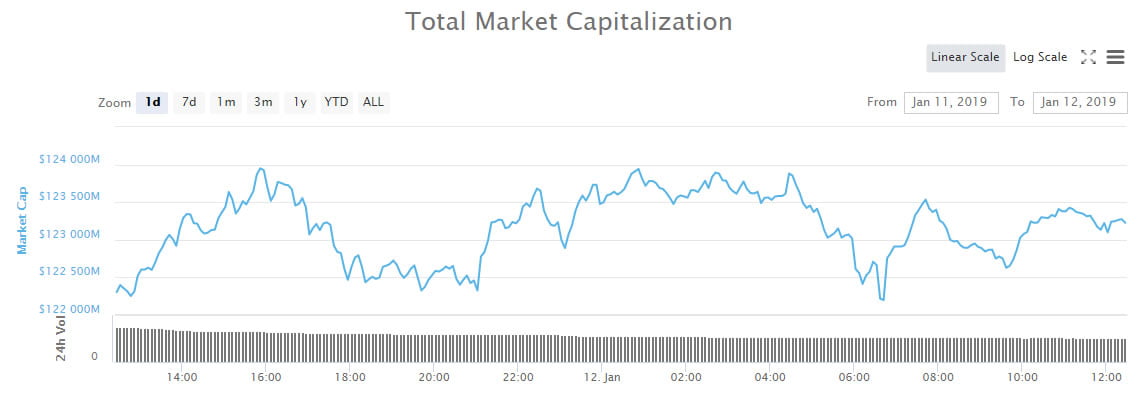
2024-2-14 19:30 |
Introduction
The transition from Fiat Standards to the Bitcoin Standard, though highly desirable, is not inevitable or necessarily imminent. The timing and occurrence of these changes hinge on the adoption choices made by individuals, organizations, and public entities. These decisions are influenced not only by rational considerations but also by emotional and irrational factors (greed and fear above all). The collective will, formed by the intentions of a critical mass with sufficient capital and agency, plays a crucial role in displacing central banks and the entrenched power structures in favor of a new system centered around Bitcoin. Despite Bitcoin's evident technical, economic, and ethical superiority over other form of money, this struggle will undoubtedly be a formidable one, with the outcome far from assured.
Nonetheless, it is crucial to reflect on the consequences that this potential revolution, if realized (as we all hope), could have on every facet of social existence. These implications span from the nature of states and international relations to the functioning of economic systems, prevailing value systems, and even the energy market and technological innovation. In this article, without the pretense of being exhaustive, we aim to briefly explore some of these aspects and suggest plausible trajectories.
Bitcoin and Fractional Reserve BankingAs Hal Finney correctly forecasted, a hypothetical Bitcoin Standard would be incompatible with central banks but not necessarily with a fractional reserve banking system. Algorithmic limits on the number of transactions per block will certainly prevent Layer 1 from serving as a retail payment system. Over time, fewer transactions will occur on it, and these will be of a very high value (in practice, only whales or large public and private institutions, given the high costs, will be able to afford them).
Some form of free banking 2.0 on Layer 2 would then be quite inevitable in the medium to long term for a Bitcoin-based monetary system. In the absence of a central bank as the lender of last resort and with much easier reserve verifiability than with gold, this Layer 2/layer 3 FRB (Fractional Reserve Banking) will be much more fragile than the current fractional reserve system supported by legal tender, central bank, and practical indistinguishability between the monetary base and the money supply. This will only reinforce the importance of Layer 1 as the solid foundation of the monetary system, similar to the role gold played in past millennia.
Macroeconomic ImplicationsCeteris Paribus, in the medium term, the adoption of a hypothetical Bitcoin Standard should significantly dampen economic cycle fluctuations, preventing excessive indebtedness, mal-investment, and credit bubbles in the private sector, leading to systemic debt crises. Monetary repression would also result in much slower but steady real growth rates in economies in the medium to long term. With the absence of the engine of monetary and credit expansion, i.e., the inflationary policies of central banks, the nominal growth of output within a Bitcoin Standard will be modest, but real growth will remain significant. In other words, any increase in multi-factor productivity will result in a decline in consumer prices measured in satoshis rather than an increase in nominal output. In this context, even in the short term, economic growth will depend on demographic, ecological, and economic factors rather than monetary or credit factors.
In this regard, with the Bitcoin Standard, there will be a gradual shift of wealth from the financial sector, which has become voracious today, to the real and productive economy. This is a consequence of the significant downsizing of bond and money markets (reduction in the level of indebtedness of economies) and therefore the entire industry profiting from them.
Among the businesses that will experience the most downsizing are centralized payment and clearing systems, traditional credit institutions, fiduciary agents such as notaries (replaced by smart contracts on Layer 2 and 3 of Bitcoin), and those involved in financial, real estate, and insurance intermediation.
On the contrary, anything leveraging the potential of Bitcoin's layers (for smart contracts) and DeFi will experience a real boom.
(Geo)political ImplicationsRegarding the immutability of the monetary base, it would force states into strict fiscal discipline as the option to monetize deficits or debt as a form of public spending financing would disappear. This will profoundly influence the ability of nation-states to provide welfare or wage wars. In the absence of a monetary printing press and, thus, the insidious tax called inflation, fiscal pressure and the allocation of public spending will become the subject of serious negotiations and political disputes, as they will directly affect the pockets of citizens/subjects/taxpayers.
On one hand, this could encourage more direct forms of democracy (facilitated by the spread of blockchains and DAOs) to give citizens a greater say in tax and spending decisions. On the other hand, a world based on the Bitcoin Standard could lead to a much more fragmented and apolar geopolitical landscape, given the intrinsic unsustainability of maintaining such large and inefficient state apparatuses, resembling more the classic medieval feudalism. Instead of the sword/blood/robe aristocracy, Bitcoin whales would become the dominant social class, where non-coiners would be a kind of new serfdom. The former, individuals, families, and institutions with huge Bitcoin holdings (created in the early stages of adopting this technology, i.e., in the first two decades of its existence), would be able to provide welfare, work, and protection to citizens/subjects in exchange for loyalty, services, and obedience to their "feudal" rule. The latter, the vast majority of the population whose ancestors arrived too late to adopt and convert their fiat capital into Bitcoin (for various ideological or practical reasons, including economic constraints), would find themselves at the bottom of the pyramid and would be forced to earn their living through the sweat of their brow or (more likely, given technological advances) through the generosity, more or less interested, of philanthropic whales. This dynamic would also apply internationally: there would be pioneering regions or nations that, having adopted Bitcoin as legal tender first, would enjoy a significant relative wealth advantage that would be hard to match by latecomers.
These would not necessarily be the currently dominant nations; in fact, some may not even exist at present. The ultimate result would be a much more fragmented international system than the current one, consisting of a mix of democratic, socialist, or oligarchic city-states, crypto-aristocratic fiefdoms centered around individual families, and large anarchic and chaotic regions. All these entities would be in competition/cooperation with each other, forming a completely new and constantly evolving geopolitical-ideological landscape. In a world where old identity affiliations (national, ideological, and religious) would overlap and mix with new identities based on the interpretation of the Bitcoin revolution. Given the technological assumptions and ideological foundations of Bitcoin culture, a "coinist" religion could emerge, tied to certain ritualistic and faith-based aspects that are already glimpsed among its staunch supporters (immaculate conception, decentralization, worship of Satoshi, algorithmic infallibility). In any case, the Bitcoin Standard would impose on the societies adopting it some economic norms closely influencing public morality. Among them are the sense of limit, the ethic of saving, prudence in investments, long-termism, honesty in commercial transactions, individual responsibility, fiscal discipline, and, of course, the independence and incorruptibility of money from state powers.
Nodes, Mining, and GeopoliticsNodes are the heart of the Bitcoin network and would, therefore, receive significant attention from political powers. Controlling full nodes (and thus potential miners) within a specific territory by public authorities would be extremely important for claiming sovereignty internally and influencing the international scene. Naturally, given other variables, nations capable of producing energy at lower costs or on a larger scale would have an advantage in allocating and thus controlling significant shares of the global bitcoin hashrate. An eternal struggle for control of the global hashrate will be the new center of geo-economic disputes. That being said, it is by no means guaranteed that most territorial political entities will be able to effectively exert this control, and it's uncertain how they will go about doing so.
While legitimate physical coercion might seem like the obvious choice, given the specific nature of states, it may not necessarily be the most successful approach in a geopolitically more fragmented and competitive landscape than the current one. Thanks to the high mobility of Bitcoin and the fiscal constraints imposed on traditional states by this monetary system, miners and whales alike could quite easily opt to move elsewhere if their property rights and entrepreneurial freedom end up in danger, finding sanctuary in more libertarian jurisdictions. On the flip side, a different scenario may unfold for those novel 'neo-aristocratic' state entities built around one or more Whales; in this case, the monopoly over mining and the necessary energy resources might be more pronounced, given the immense economic power held by their governing bodies.
Energy Market ImplicationsBitcoin is not a commodity currency but an energy one. The power it encapsulates is the energy consumed to create and transfer it. As the lifeblood of the new monetary paradigm, therefore, energy will be even more at the core of the economic system than today. This will radically inform progress in the energy sector, generating a race for technological innovations on both the extraction and energy-saving sides. A whole range of energy sources previously neglected as uneconomical could now become convenient and accessible thanks to their use for mining. Think of the sun in African and Asian deserts, deposits of methane and natural gas in remote locations, or geothermal energy from volcanoes and geysers, or even some systems based on wave motion and temperature differentials in the depths of the oceans.
With an ever-increasing demand for energy, there will be a growing incentive to generate more energy and do so more efficiently in a virtuous circle that could lead to a major energetical revolution, potentially bringing humankind closer to a level 2 civilization on the Kardashev scale, certainly contributing to electrifying the planet even in the remotest places. Another likely consequence of a Bitcoin Standard will be the reversal of roles between energy producers and consumers. The largest energy consumers (mining farms) will over time become the main energy producers in a vertical integration of assets and energy infrastructure that, starting from the bottom, will assimilate the entire energy industry. Whether this will lead to greater or lesser concentration versus decentralization of energy producers remains to be seen, but it will certainly depend on the commercial dynamics of the mining industry.
This is a guest post by Michele Uberti. Opinions expressed are entirely their own and do not necessarily reflect those of BTC Inc or Bitcoin Magazine.
origin »Bitcoin price in Telegram @btc_price_every_hour
Bitcoin (BTC) на Currencies.ru
|
|

























